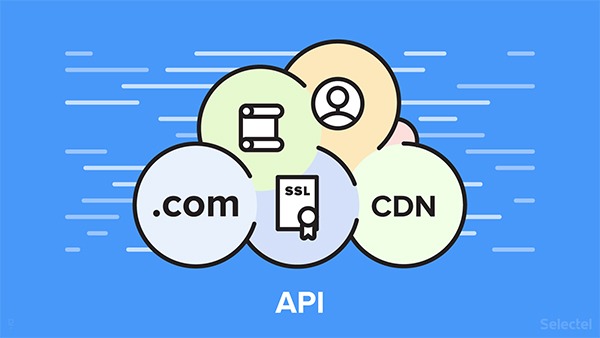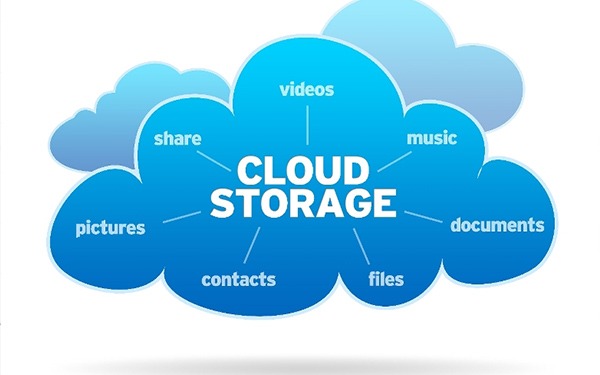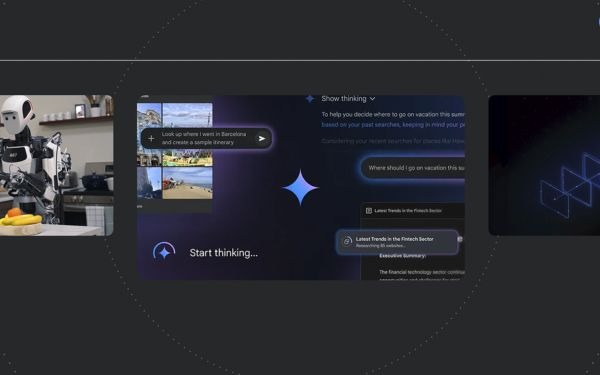Google Cloud liên tục đổi mới và đầu tư đáng kể vào khả năng ngăn…
Cloud Storage API Overview
Cloud Storage API provides a secure and convenient method to store and host programmatic services. Cloud storage is a service that allows customers to store data in an off-site location and access that data over the internet. At the same time, Application Programming Interfaces (APIs) are at the core of most companies, allowing software programs to communicate and interact with each other.
And in this article, Gimasys will explore the basic concepts surrounding Cloud Storage API. We'll define what Cloud Storage APIs are, look at their features, how they work, and look at the benefits that Cloud Storage API integration can bring.

Cloud Storage API Overview
API
There are more than 24,000 public web APIs on the market today. This type of software allows application users to leverage the work of other developers in a more streamlined and standardized way.
API stands for Application Programming Interface, representing a framework of tools, features, and software service integration processes. It acts like a middleware that allows an application to connect and access capabilities.
 IT companies and organizations initially used APIs in desktop computers to facilitate information sharing between software such as Word and PowerPoint or to allow software to access operating system features, such as Linux or Windows.
IT companies and organizations initially used APIs in desktop computers to facilitate information sharing between software such as Word and PowerPoint or to allow software to access operating system features, such as Linux or Windows.
Cloud Storage
Today, data warehouses and Data Warehouses are no longer the only storage options. There is growing emphasis on improving the accessibility, usability and adaptability of information, as well as the use of automated technology to speed up processes. Cloud Storage Solution will help businesses solve the above problems and more.
 Cloud Storage is a scalable and cost-effective option for storing files and data on separate networks. Any data transferred offsite for safekeeping is the responsibility of the third-party cloud service provider.
Cloud Storage is a scalable and cost-effective option for storing files and data on separate networks. Any data transferred offsite for safekeeping is the responsibility of the third-party cloud service provider.
Cloud Storage offers flexibility, providing more capacity as user data volumes increase and reducing capacity when there is less demand. In the Cloud Storage space, different types of APIs include:
- API connects to cloud storage services.
- The API connects the web application to the cloud storage service.
- Other APIs use storage-related services, such as data lake, data warehouse, database.
Relationship between API and Cloud storage
Cloud Storage API allows users to access, add, update, and delete data from Cloud Storage. It allows applications and web services to access cloud storage providers programmatically. Web applications can request services and operations from Cloud Storage servers through Cloud Storage API integration.
These APIs are often built in REST (Representational State Transfer) or SOAP (Simple Object Access Protocol) architecture. These architectural styles make it easier to retrieve data and request services from distributed database systems such as Cloud Storage and the web.
REST APIs typically operate over HTTP and are designed to be language neutral. Therefore, they can be used easily by programmers, who can use the programming language they like, whether it is Python, PHP, Ruby, Java or JavaScript. APIs are maintained by programmers who understand their product features and how best they can optimize these features. For example, with the REST architecture interface on Google Cloud Storage, the Cloud Storage API allows programmers to develop and manage data.
How companies use the Cloud Storage API
Any organization seeking a competitive advantage needs connectivity. Typically, APIs are a new approach for businesses and serve as a path to new worlds of cloud infrastructure, such as enabling platform business models, connecting partners and mobile experience.
Many organizations also use APIs to access databases such as NoSQL and SQL. Higher-level service layers are often built on top of these databases, such as data warehouses and data lakes, which improve data access and efficiency for companies.
These APIs connect local systems to the cloud and have the ability to transform business process improvements.
Strengths of Cloud Storage API
Here are some of the core benefits that make Cloud Storage API a staple in modern applications:
Cost-effective
With cloud computing, all the traditional costs associated with purchasing additional servers, salary costs for IT professionals, and network equipment are no longer necessary. Instead, the cloud service provider will bear these costs and distribute the services to different companies, thereby creating cost efficiencies.
Additionally, IT can allocate historical capital expenditures and use them for operating expenses. This means businesses can allocate more resources to maximize innovation.
Flexible service
Cloud Storage is available on demand, allowing for easy setup whenever needed. This promotes flexibility in your work schedule. Best of all, most cloud API services allow for a flexible way to handle the need for additional storage as the organization grows.
Easy to maintain
Any upgrades or patches are quickly rolled out across the common infrastructure. Maintaining a cloud storage service does not require hiring a lot of IT or technical staff to handle it because the process is usually simple.
Data security
Data is very secure compared to local storage because it is encrypted and only approved employees such as server staff can access the data. There is also no risk of data loss because the cloud service provider saves your data multiple times in many different places.
Cloud Storage API Weaknesses
Connection required
To access your stored data, you must have a stable internet connection. Sometimes, your provider's connectivity may be low or their servers may have maintenance issues that can affect your data retrieval speed.
Interoperability and control challenges
Mặc dù hầu hết mọi người có xu hướng cho rằng việc này thật dễ dàng, nhưng việc sử dụng Cloud Storage có thể trở nên khá phức tạp. Các nhà cung cấp khác nhau có các phương thức truy cập khác nhau và các API không chuẩn khiến cho việc kết nối các ứng dụng trở nên khó khăn và tốn kém. Điều này có nghĩa là khả năng tương tác giữa các dịch vụ đám mây trở nên khá phức tạp.
In conclusion
Now you can confidently say you understand the basic concepts of Cloud Storage API — this basic knowledge will be required as you enter IT Cloud 4.0. Organizations and software developers should consider how cloud storage services can be extended through APIs. Doing so can help prioritize a company's specific needs for both current and future hosting purposes. On the other hand, traditional strategies for data storage depend on a lot of paperwork, workforce, and time-consuming measures that are outdated. API integration helps communication between applications flow without overloading servers, misrouting data, or allowing access to the wrong people.
Gimasys - Google's Premier Partner in Vietnam is a provider and consultant on the structure and design of the optimal Cloud solution for you. For technical support, you can contact Gimasys – Premier Partner of Google in Vietnam at the following information:
- Hotline: 0974 417 099 (HCM) | 0987 682 505 (HN)
- Email: gcp@gimasys.com
Source: Gimasys



